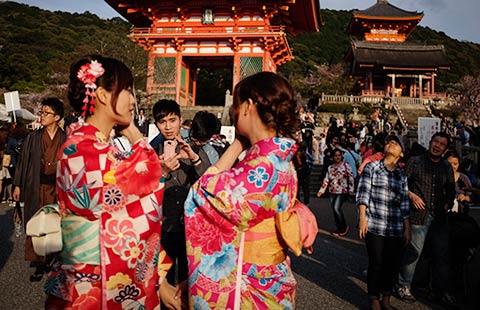HK health vouchers for elders to be permanent
By Kahon Chan in Hong Kong (China Daily) Updated: 2012-11-20 09:59A Legislative Council (LegCo) panel unanimously endorsed a government proposal to convert the elderly healthcare voucher program in Hong Kong into a permanent scheme on Monday. The proposal will also raise the annual voucher credit from HK$500 ($64.5) to HK$1,000 per person beginning next year.
While the government's proposal did not respond to persistent demands to lower the age of eligibility from 70 to 65, acting Secretary for Food and Health Sophia Chan Siu-chi agreed that the government would seriously consider the suggestion raised by lawmakers at a meeting of the LegCo Panel on Health Services.
Like the Old Age Living Allowance, the proposed increase in the healthcare vouchers to HK$1,000 per person per year is another promise made by Chief Executive Leung Chun-ying, following his victory in the election for the city's top job.
In the funding proposal submitted to the LegCo, the administration proposed to convert the pilot scheme - which was to expire by the end of 2014 - into a recurrent expenditure and increase the maximum credit that could be carried forward, from HK$2,250 to HK$3,000 per person per year, effective from 2015.
Richard Yuen Ming-fai, permanent secretary for Food & Health, said that once the scheme becomes permanent, more service providers will sign up and a wider choice offered to seniors will increase the utilization rate.
The pilot scheme was launched in 2009 with an annual credit of HK$250. That was doubled to HK$500 on January 1, 2012. The program affects all elders aged 70 or over, and 460,000 seniors requiring medical care had applied for HK$327.5 million worth of vouchers in 2.3 million transactions by the end of October.
The four-fold increase of the voucher credit over the past year will mean a considerable increase in cost - an additional HK$362 million is projected for 2013, more than the cost for the entire program in its three-year history. By 2018, the required cash outlay for the scheme is expected to rise to around HK$500 million a year.
Despite persistent demands from legislators, the proposal did not extend the scheme to elders between 65 and 69. Alice Mak Mei-kuen of the Hong Kong Federation of Trade Unions noted the change could cost an extra HK$300 million a year, but she thinks it would be worthwhile to benefit an additional 300,000 elders.
Sophia Chan, the acting health chief, said the administration remains open to that suggestion. "We genuinely are willing to try our best to serve the public and consider the matter. That's all I can tell (now)," she said.
The newly appointed health official also gave her response to the lawmakers' demands. "I understand that the lawmakers' demands on a lot of matters have been a reflection of the people's views, rather than to give a hard time to the government," said Chan. "I don't see any confrontation in it."
In the end, the proposal managed to obtain unanimous endorsement of the panel. It will be brought before the LegCo Finance Committee for formal approval next month. The committee has yet to vote on the proposal for the Old Age Living Allowance after four meetings.
The LegCo panel also agreed to call a special meeting, in the light of the Audit Commission's findings of negligence over land grants at private hospitals. The Public Accounts Committee of the LegCo will also hold a hearing concerning the auditor's report in coming weeks.
kahon@chinadailyhk.com
- CIMC ENRIC to use Internet Plus solutions to sustain growth
- More western filmmakers tend to seek Chinese partners
- China Vanke shares drop amid shareholding spat
- Russia's oil producer Rosneft mulls share sale to CNPC
- BGI's incubator enabling innovation in gene science sector
- Alibaba affiliate Ant Financial plans to buy stake in Ascend Money
- Chinese banks' net forex sales drop in May
- COSCO competes to build cruise business of Xisha Islands


















